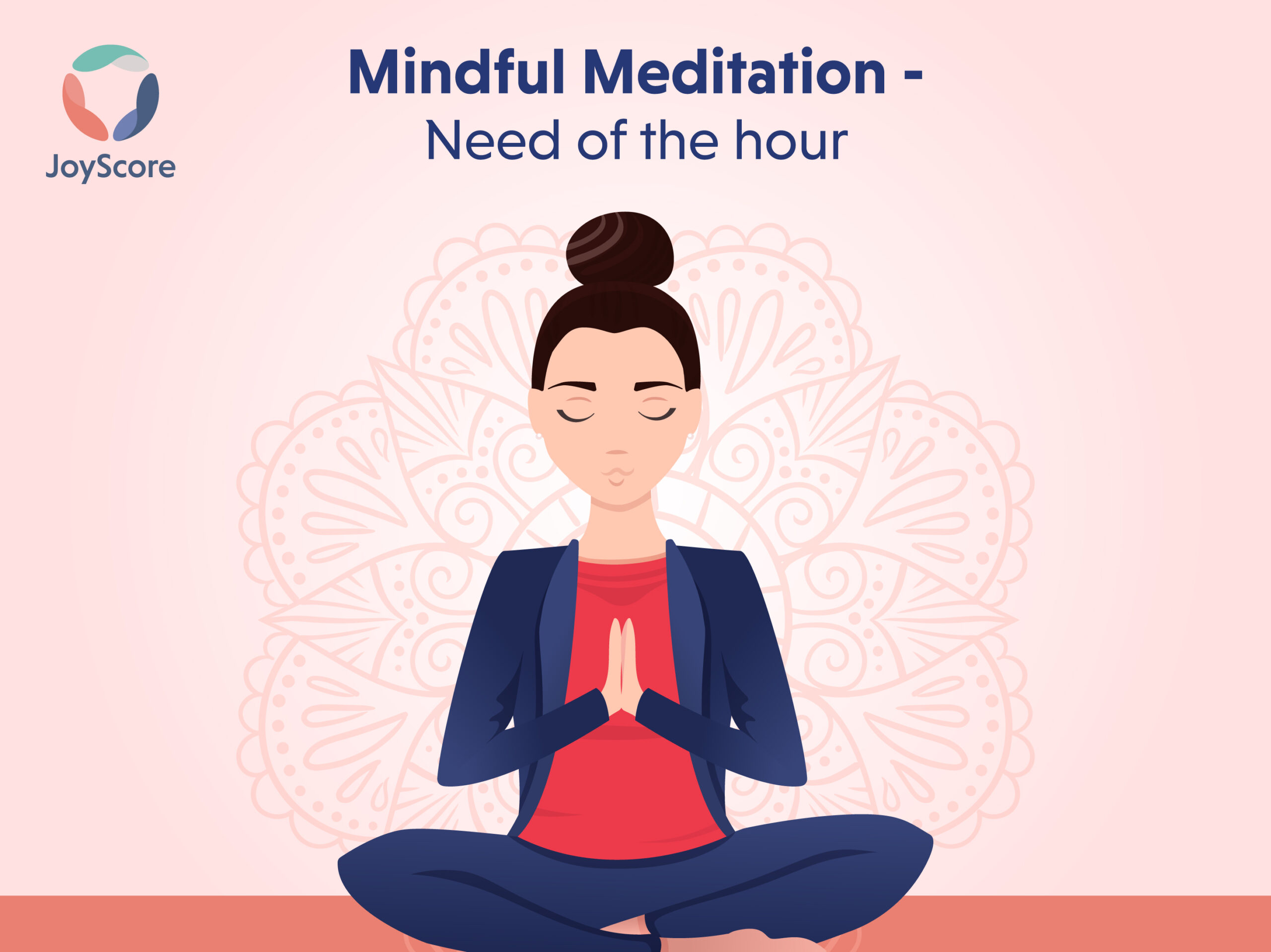Mindful Meditation: The Power And Science Behind It
What does mindfulness mean? A term that has gained extreme importance and attention in the past few decades. With the fear of COVID looming over, more and more people have succumbed to several mental issues during these times.
While despair, depression, and stress engulfed people, many resorted to mindful practices to combat these problems and have benefited from them.
So what exactly are these mindful activities, and how are they beneficial? Let’s delve in.
One major mindful technique is meditation, used for over a thousand years. Loaded with umpteen benefits for overall well-being, meditation has proved to be a boon for society, loaded with umpteen benefits for overall well-being.
When one practices mindfulness through meditation, it can help develop a strong connection between the mind and the body; one learns to accept difficult things that are going around them.
Although its origins date back to ancient times, it is gaining popularity and is being practiced even today. One can find peace and harmony with oneself and develop inner calm by practicing it.
There are different styles of meditation that people can follow, including mindfulness meditation, movement meditation, focused meditation, mantra meditation, transcendental meditation, progressive relaxation, spiritual meditation, and visualization meditation.
Each of these meditations requires a different skill and frame of mind. And whatever style the person feels comfortable with, he/ she should practice.
Backed by Science
Meditation is a mindful practice, which involves training our minds to become aware of our surroundings. It is to focus as well as redirect our attention towards observing things without judging them.
A way to reduce stress and improve concentration, the benefits of mindful meditation are backed and supported by scientific evidence and research.
The benefits of meditation are not just restricted to mental healing but have been shown to extend their positive effect on several physical problems too.
Research studies have shown the role of mindful meditation in conditions such as irritable bowel syndrome, psoriasis, fibromyalgia, and post-traumatic stress disorder and reducing stress, anxiety, and depression.
Let’s learn about some of the scientifically proven benefits of meditation.
1. Keeping stress at bay

Mental stress is accompanied by rising cortisol levels and the release of inflammation-causing chemicals which can prove harmful to the body.
These can lead to anxiety, disrupt sleeping patterns, promote fatigue, increase blood pressure, and also may cause depression.
Research has shown that mindful meditation can help counter this inflammatory state caused by stress. And thus can help to bring down stress levels.
2. Anxiety in control
When a person suffers from stress and is trying to cope, it is accompanied by anxiety. As meditation helps reduce stress, it can also have a positive effect on a person’s anxiety levels.
Several studies have emphasized the impact of mindful meditation in controlling anxiety, thus improving ways people can cope with it.
Evidence from many research studies also gives an insight into the role of different meditation techniques and mindfulness exercises in reducing anxiety.
3. Breaking addictions and increasing self-control
Research shows that following mindful practices such as meditation can help people develop mental discipline. It can put people in self-control by keeping them off dependencies and thus improving their quality of life.
4. Bringing positivity
Mindful meditation practices can help promote the emotional health of a person. It can bring positivity and lead to mood enhancement.
Research shows people who practice mindfulness are less likely to be bogged down by negative thoughts and emotions.
5. Increasing Self-awareness
Over more than 20 research studies have shown the role of mindful meditation in making people more aware of themselves, recognizing their capabilities, and increasing their confidence.
Also, people who practice mindful meditation have been shown to possess a positive thought process and thus believe in overcoming challenges.
It also makes them more creative and improves their problem-solving abilities.
6. Better sleep

Research shows that practicing mindful meditation can help people sleep longer. Also, when meditating on a regular basis, people suffering from Insomnia can relax in a better way, improving the severity of their insomnia.
It can help generate a peaceful sleep by keeping away thoughts that often lead to sleeplessness.
7. Health benefit- Reducing blood pressure
Heart diseases being very common these days pose risks to several lives. And an increase in blood pressure contributes significantly to poor heart functioning leading to strokes and heart attacks.
Practicing meditation regularly helps release tension present in blood vessels and the various signals that help coordinate heart muscles during many stressful situations.
8. Regulates Pain and its reduction
When stress takes over, pain may accompany and become elevated in many situations.
Studies conducted on patients with chronic pain show that meditating regularly can help bring down the pain sensations and help people with an increased ability to cope.
People with chronic pain have shown to be highly benefited by practicing mindful meditation.
9. Impact on disease conditions
Mindful meditation has also been shown to impact several diseases positively.
It can help alleviate symptoms of conditions such as Parkinson’s and Alzheimer’s disease, anxiety disorders, attention deficit hyperactivity disorder (ADHD), and many more.
10. Reduce aggression and generate kindness
Several meditation techniques are associated with inculcating positivity in self and towards others.
About more than 20 research studies support the basis of this. These studies give an insight into how practicing meditation made people more positive, compassionate, and kind towards others.
The positive feelings were shown to increase with the number of times people meditated in a day.
The Bottom Line
Meditation is a way of connecting with your inner self and bringing yourself to peace. You can choose from different meditation styles and get started with the one that suits you and your schedule. There are styles which you can be done anywhere. For more information and tips on mindfulness meditation, download the JoyScore App for free and immerse yourself in the benefits of meditation.
Download the Joyscore app Now!
Download on the Appstore
Get it on Google Play



